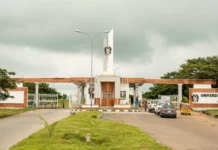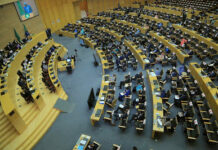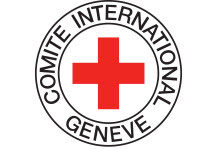President Cyril Ramaphosa’s African National Congress (ANC) is set for a clear victory in South Africa’s election but with a lower vote share, both for it and its main rival, the Democratic Alliance.
Analysts said ANC reduced votes reflected anger at corruption scandals and racial inequalities that remain entrenched a generation after the party took power.
With 99.96 percent of voting districts counted following Wednesday’s election, the ANC led with 57.5% of the vote.
The main opposition Democratic Alliance (DA) was on 20.79% and the leftist Economic Freedom Fighters (EFF) had 10.78%.
In 2014, the ANC won 11.4 million votes, while the DA won 4.091m votes. According to vote tally published by News 24, the ANC this year won 10 015 633 votes, while the DA also recorded a fall in voter endorsement, winning 3.6 million votes.
ANC’s splinter party, Julius Malema’s Economic Freedom Party was a major gainer of ANC’s votes. His party increased its vote tally from 1.1million in 2014 to 1.8million this year. No other party enjoyed the popularity leap.
The IFP, VF-Plus and ACDP also gained more votes compared to their records in 2014.
UDM is the biggest loser among the fringe parties, winning just 77,000 votes, a big fall from the 184,000 votes won five years ago.
In the provincial elections however, South Africa is still ANC country, with the party losing only Western Cape to the DA.
The ANC has governed South Africa uninterrupted since the country’s first free election marked the end of white minority rule in 1994.
The ANC’s victory will secure it enough seats in parliament to give President Cyril Ramaphosa another five years in office but may leave him short of ammunition to battle party rivals who oppose his reforms to galvanise the economy and counter graft.
The ANC had not previously won less than 60% of the vote in a national election. Two results are still to come from nine provincial polls also held on Wednesday.
Ramaphosa, who replaced scandal-plagued Jacob Zuma as president in 2018, had sought to re-engage ANC voters whose support was eroded by faltering efforts to address corruption, unemployment and disparities in housing, land and services.















